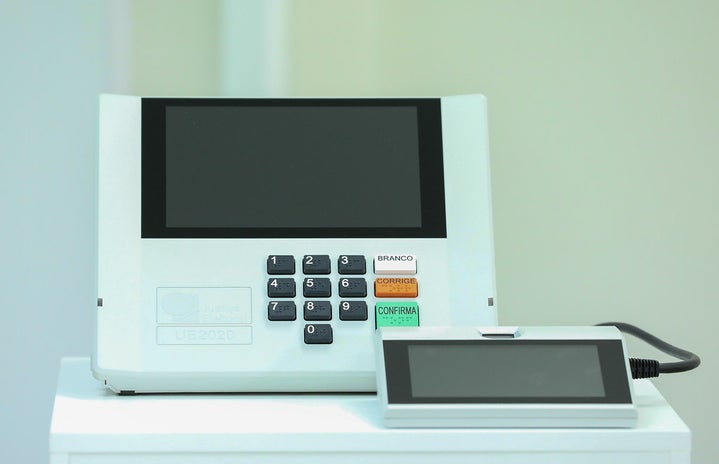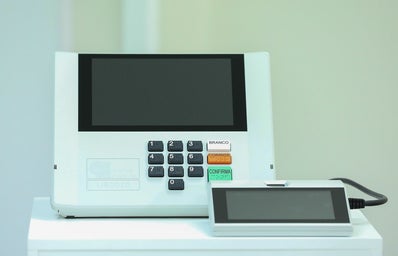The most commented theme for the last few months in Brazil has been the presidential election. Especially after the first turn, which surprised Brazilians by the slight difference of votes between Luis Inácio Lula da Silva and Jair Bolsonaro – which the polls did not predict – the expectation for the final results has increased significantly.
But not only Brazilians who are currently living in the country are longing to see how the second turn plays out. Those who live in foreign territories also hope that the candidate of their choice achieves the highest station in Brazil.
That’s the case with Felipe Muniz. The Medicine student currently living in Argentina voted for Lula in the first turn and expects that the Workers’ Party (Partido dos Trabalhadores) candidate will regain the position in office after 12 years.
For him, being in another country didn’t change his decision of voting in 2022: “I knew I would vote, I just didn’t know under which circumstances. Since 2018, my first election, I saw Jair Bolsonaro assuming as president, and decided I would vote again this year. It just so happens I came to Argentina and, as soon as they allowed the change of the voting area, I decided to change it to express my voice, exercise my right, and allow people in Brazil to have a better life”.
When the Tribunal Superior Eleitoral (TSE) – Brazil’s judicial electoral regulatory system – allowed people living abroad to change their voting zone, he had no doubt: presented his electoral card, identity card, passport, proof of residence, and proof of layoff from military duties in an online platform of the governmental agency, and requested the change.
Even the three and a half hours of waiting in line to get to the ballot box didn’t change his mind. For Felipe, his vote is not only a constitutional obligation he must fulfill but an act of exercising his role in society.
Since childhood, he’s been a politicized person. Because his mother came from a humble neighborhood in a Brazilian favela and could only escape poverty by studying, he learned to value those who cherish education. “At school, I had teachers who talked about the importance of aligning the political and the educational axis, and I got to understand how I fit in this scenario and how my interest was important, that I shouldn’t just vote every two years, but really express my voice all the time”.
As he sees it, Lula’s policy during the Workers’ Party government in Brazil – which went from 2003 to 2010 under Lula’s management, and from 2011 to 2016 under Dilma Rousseff’s – was the reason why he could attend medical school in Argentina, because of the Mercosul arrangements made during this period.
Besides the impact on his family’s situation and education, another thing that encourages him in voting for the former president is his distaste for Jair Bolsonaro. Being a gay man, Felipe constantly feels overwhelmed by the president’s statements, having “his existence treated with disdain”.
When he was asked if he would return to Brazil in case Bolsonaro won the election, he answered: “I left Brazil because of Bolsonaro’s government. The whole thing about me coming to Argentina was based on a statement he made in 2020. I don’t even remember what it was, but it made me so outraged that I searched how I could leave Brazil and I discovered I could study in Argentina, which motivated me”.
Lula winning the presidential election would be a relief for Felipe, who currently has psychological issues, many of which are related to Jair Bolsonaro’s policies and statements. “I am not exaggerating, many of my complaints to my therapist are due to the anxiety crisis I have, which originated by some attitude of the president towards the increase of hunger in the country [for example]”.
The overall mood in the voting area was of support for the Workers’ Party candidate. People wearing red – the party’s official color-, protesting against Bolsonaro and trying to change other people’s votes in line were common things happening on October 2nd. “There were few people making opposition to us, and you could notice quite well the composition of Buenos Aires’ electoral college because Lula had 63,54% of the votes here”.
“That made me really comfortable. We were quite relaxed, the only thing is that the size of the line was tiring. It went around the Brazilian Embassy’s block, crossed the street, followed to the corner, went around it twice, then continued in the 9 de Julio avenue”, tells Felipe.
He hopes in the next election, in 2024, the Embassy changes its organization. At the same time, he acknowledges it is a problem around the world: seeing the Brazilian Embassy in Florida, in the United States, he realizes the situation was similar. “I guess it is a characteristic of Embassies”, he says.
Furthermore, he calls attention to the fact that the information about changing the voting zone for people who live abroad wasn’t widely spread. Even though he raised awareness and informed people close to him about it, he thinks it was lacking from the Brazilian Embassy in Argentina.
The article above was edited by Julia Bonin.
Liked this type of content? Check Her Campus Cásper Líbero home page for more!

